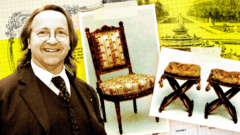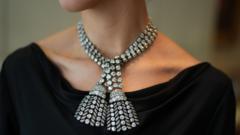In a dramatic courtroom unfolding, Bill Pallot, once revered in the art world for his expertise in 18th-century French furniture, is now on trial in France, accused of orchestrating a deceptive scheme involving counterfeit antiques. Pallot, whose connections placed him at the center of Parisian art circles, allegedly misled prominent buyers—including Prince Abdullah bin Khalifa Al-Thani of Qatar—into believing that chairs attributed to historical figures like Marie Antoinette were genuine.
Bill Pallot's Art Deception: A Trial of Royal Proportions

Bill Pallot's Art Deception: A Trial of Royal Proportions
A celebrated art expert faces allegations of fabricating the provenance of valuable antiques, leading to high-profile purchases of counterfeit furniture.
His downfall is attributed to the keen eye of a former student turned rival who could distinguish authenticity merely by taste. At his height, Pallot's influential works and charismatic personality garnered him respect, leading to the classification of various pieces as national treasures. However, the very reputation built on his seminal book, “The Art of the Chair in 18th Century France,” now stands tarnished as Pallot faces scrutiny for capitalizing on trust to execute his artful fraud.
As the trial progresses, fervent discussions surrounding authenticity, art market ethics, and the intersection of personal integrity with the pursuit of profit continue to unfold, capturing the attention of the media and art lovers alike.
As the trial progresses, fervent discussions surrounding authenticity, art market ethics, and the intersection of personal integrity with the pursuit of profit continue to unfold, capturing the attention of the media and art lovers alike.






